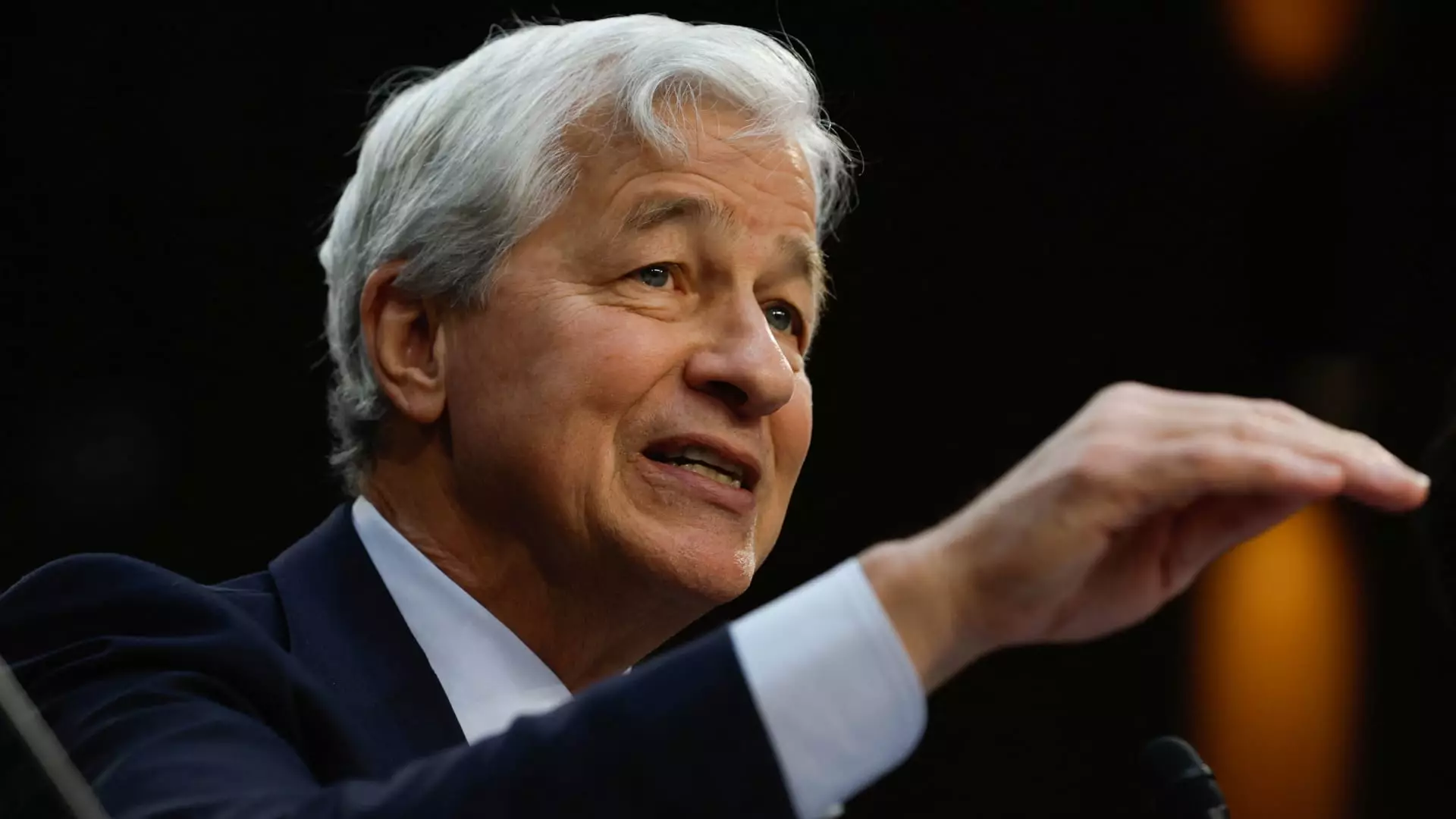In a climate of economic turbulence, financial leaders are voicing concerns over the potential ramifications for corporate earnings. Jamie Dimon, the CEO of JPMorgan Chase, has articulated a critical view of the market’s outlook, particularly as the uncertainties stemming from President Trump’s trade negotiations loom large. This isn’t just corporate rhetoric; it’s a reflection of the shifting landscape where even the most robust institutions are feeling the pressure. Dimon’s prediction that many companies may withdraw their financial guidance serves as a warning sign to investors and market participants alike. The heightened volatility due to trade tensions with global partners, especially China, is shaping a cautious business environment, which could have profound implications on investment strategies going forward.
Analysts Reassess Projections
In light of the uncertainty, analysts appear to be taking a conservative approach, dramatically revising their S&P 500 earnings estimates. Initially expecting a modest five percent growth, there’s a troubling forecast of these projections potentially flattening out or even dipping into negative territory. This significant recalibration signals that risk assessments are being prioritized, as companies brace for the fallout of shifting trade policies. The anticipation of lower earnings growth not only redefines expectations but also creates a ripple effect through various sectors. Firms traditionally regarded as stable and reliable are now caught in a web of caution that diminishes enthusiasm for future investments.
Consumer Behavior and Market Reaction
While it might seem that consumers are immune to these fluctuations, evidence suggests that their purchasing behavior is also adapting to the turbulent environment. Observations indicate that as fears of rising prices due to tariffs grow, consumers are ramping up spending in anticipation of increased costs. This phenomenon hints at a complex interplay between consumer psychology and market conditions, wherein short-term anxiety leads to a surge in immediate buying—an unpredictable dance that could further amplify economic volatility. Businesses are left navigating these shifting sands, trying to strike a balance between addressing consumer needs and forecasting future performance amidst an unstable landscape.
A Trend Towards Caution in Investments
The prevailing sentiment articulated by both Dimon and CFO Jeremy Barnum resonates clearly: caution is now the name of the game. The hesitancy to pursue new deals, even at the middle-market level, reveals a deeper concern where long-term investment strategies are being sacrificed for immediate operational optimization. Companies are opting for short-term fixes rather than engaging in long-term planning, a trend that could hinder future growth potential. The call for prudence in planning underscores the urgency of mitigating risk in an unpredictable climate—an acknowledgment that strategic foresight may be compromised by the current geopolitical climate.
In essence, as corporations wrestle with the ramifications of trade uncertainty, the landscape is shifting towards a more cautious and conservative approach. This requires businesses not only to adapt to immediate challenges but also to reconsider their long-term strategies in an environment that is increasingly difficult to navigate. The implications of these developments will likely resonate through the markets for some time, urging stakeholders to remain vigilant and responsive.

